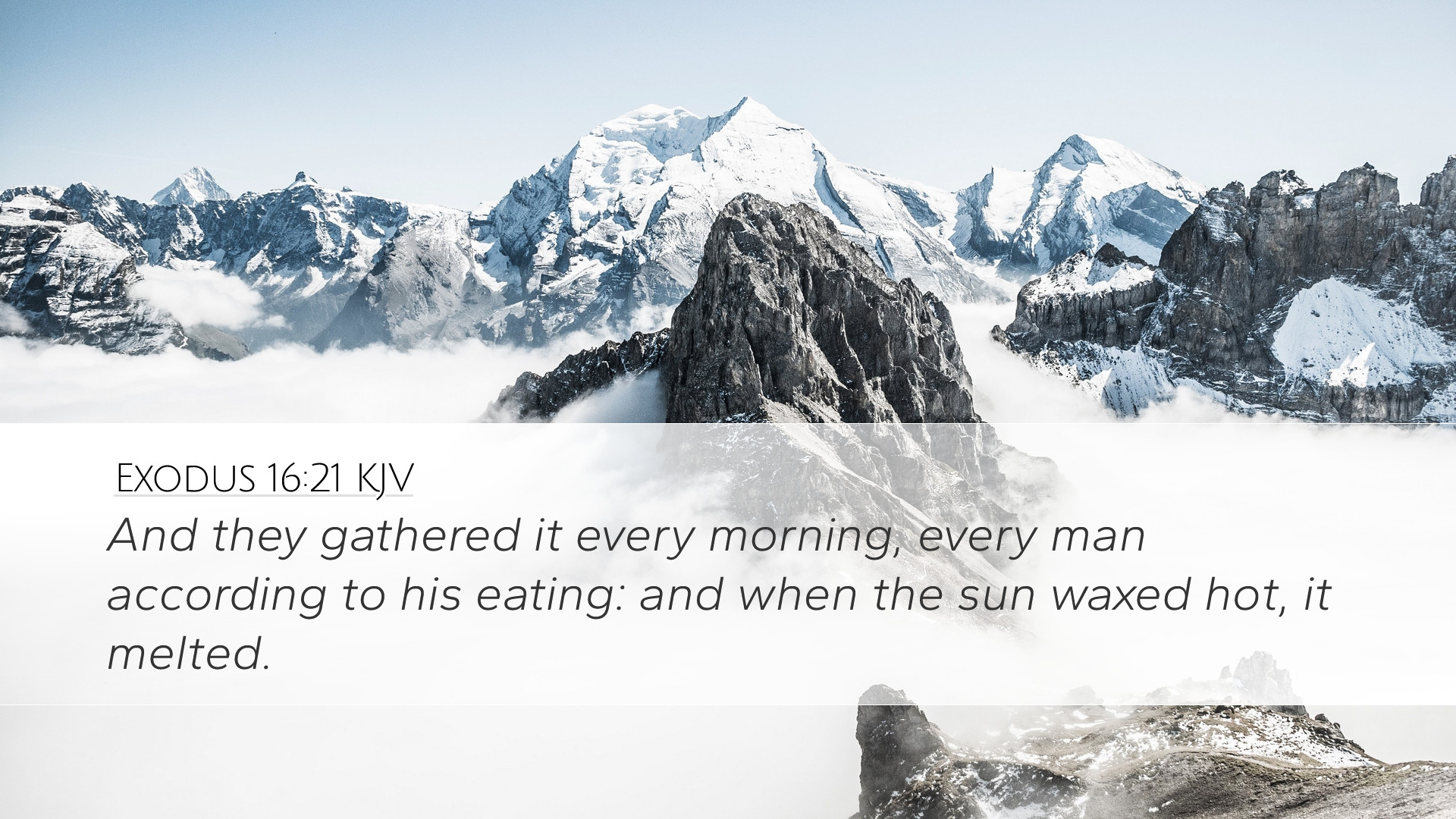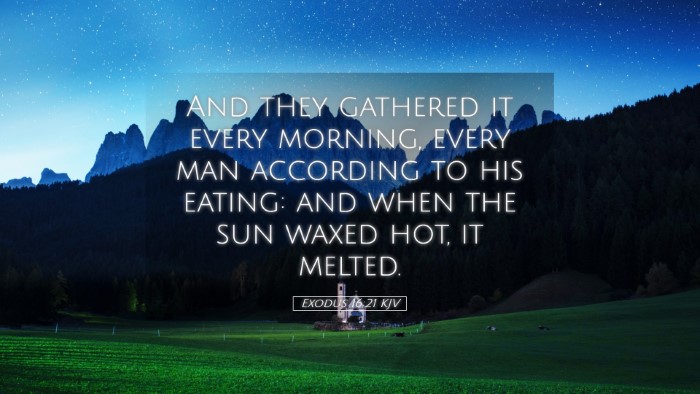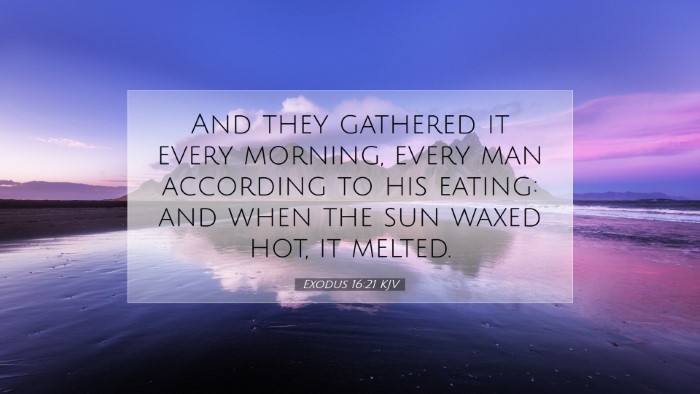Exodus 16:21 - Commentary Overview
Exodus 16:21 reads:
"And they gathered it every morning, every man according to his eating: and when the sun waxed hot, it melted." (Exodus 16:21, KJV)
Contextual Background
This passage falls within the narrative of the Israelites' wanderings in the wilderness after their exodus from Egypt. Here, God provides manna, a supernatural sustenance, to cater to the needs of His people. This text highlights the instructions regarding its gathering and signifies a profound lesson of dependency on divine provision.
Commentary Insights
Matthew Henry's Commentary
Henry emphasizes the significance of the "every morning" aspect, noting God's faithfulness to provide for His people daily. He illustrates how this daily provision teaches reliance on God’s merciful hand rather than accumulating wealth or stockpiling resources out of fear. Henry suggests:
- Dependence on God: The morning collection was a lesson to trust God for daily needs.
- Holiness in Provision: Manna was a divine gift and a trial of obedience.
- Timing and Conditions: The sun's heat causing the manna to melt serves as a metaphor for the fleeting nature of earthly provisions; what is gathered must be consumed while it is available.
Albert Barnes' Commentary
Barnes provides further elaboration on the logistics of manna gathering. He highlights the communal aspect of the collection, as each individual gathered according to their consumption needs, emphasizing:
- Social Equity: Each man gathered "according to his eating," which suggests a balance of provision, promoting equitable sharing and discouraging greed.
- Divine Order: The instructions issued served to maintain order and ensure that no one would suffer due to another's excesses.
- Symbolic Lesson: The gathering of the manna symbolizes the ongoing provision of God, calling believers to seek the Lord first daily for their sustenance.
Adam Clarke's Commentary
Clarke delves into the linguistic and cultural implications of the text. He comments on the nature of the manna, presenting it as a miraculous food suited to the wilderness experience, and he notes the following:
- Miracle of Manna: The miraculous creation of manna from heaven underscores the omnipotence of God.
- Human Response: Clarke reflects on humanity's propensity for distrust; despite God's provision, the people often complained, indicating the need for faith in the face of scarcity.
- Moral Instruction: By commanding the gathering only for a single day, God was instilling a rhythm of dependence rather than an atmosphere of anxiety.
Theological Implications
Theologically, this passage serves as a profound reminder of the nature of divine providence. God’s provision is not merely physical but also spiritual, encapsulating the belief that our needs are eternally met in Him. The gathering of manna can be likened to the Lord’s Prayer, "Give us this day our daily bread," illustrating how the act of receiving sustenance must be performed in a spirit of humility and gratitude.
Lessons for Today
- Trust in God’s Provision: Believers are called to a daily faith that God will provide what is necessary for life and godliness.
- Community and Generosity: The communal gathering emphasizes the need for sharing and caring for one another within the body of Christ.
- Temporary Nature of Earthly Needs: Recognizing that earthly provisions are temporary serves to redirect focus towards eternal spiritual truths.
Conclusion
Exodus 16:21 offers rich insights into the nature of God’s provision, the importance of community, and the necessity for daily trust in divine faithfulness. The teachings behind the gathering of manna continue to resonate, challenging God’s people to align their trust and reliance upon Him in all circumstances of life. Such reflections are invaluable not only for personal faith but also for enriching pastoral teachings and scholarly pursuits alike.


